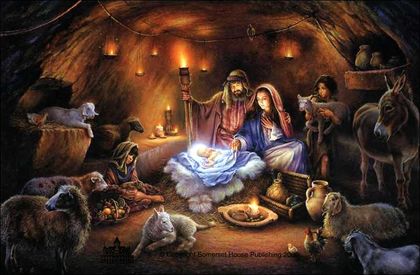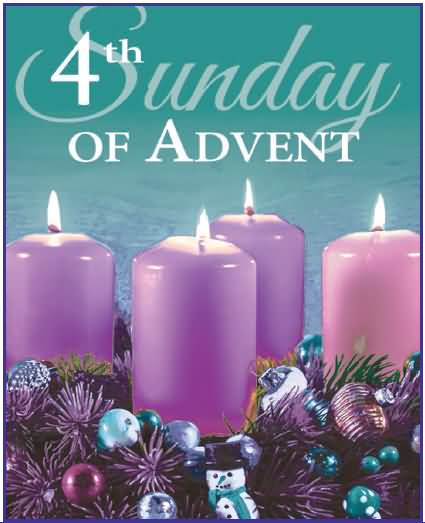Isaiah 64:1-9; 1 Cor 1:3-9; Mark 13:24-37.
Keep Awake
Today
marks our entrance into the season of Advent and the second cycle of readings.
The word Advent means “coming”. In this context it actually depicts the coming
of our Lord Jesus Christ seen in two ways: his coming as a new born child (at
Christmas), not in the historic Bethlehem but into our hearts and his Second
Coming for the final judgement at the recession of the world. They are both
future events and that is why we have the WAITING clause attached to Advent. In
all, we are meant to wait for the coming of the Lord Jesus Christ in terms of
the aforementioned ways. Furthermore, the vehicle for the “waiting,” for the “coming,”
is “watching”.
Some years ago
there was some breaking news on TV that to me seemed to be a wonderful example
of being prepared. The news was about a man who accidentally walked into a
store during a robbery. The gunman pointed his pistol at him and ordered him to
hand over his money. The man responded calmly, "Go ahead and shoot. I just
had my daily Bible passage and said my prayers." The robber was confused
by that reaction, and the man walked away. I have to admit that I probably
would have handed over my money, but I do admire that man's courage - and above
all his apparent readiness to meet the Lord. That is what Jesus tells us today.
Be prepared, be alert and watchful. Mark's portrait of the doorman, watching
out to open for the Lord whenever he "suddenly" appears is an image
of what we are expected to be doing all year long but especially during the
season of Advent. The doorman keeps awake in order to recognize and welcome the
Lord at his coming. Faith, likewise, transforms us into people who are able to
recognize the Lord and willing to receive him. Recognition is crucial because
the Lord does not always come in easily recognizable ways. At Bethlehem he came
in the form of a baby and people did not recognize him.
Watchfulness
is a great virtue. It could also be rendered as vigilance, circumspection,
awareness, or attentiveness. When someone is waiting for something, there will
be every need for the individual to be watchful or vigilant. This is important
because one needs to see or observe what one is waiting for so that when it
finally arrives one will not be taken by surprise. There is a tendency to wait
and not to watch or be vigilant. There is also the tendency to wait and be
watchful on the wrong side or to be distracted from what one is waiting for and
attending to some other thing. Generally waiting is not enough, one needs to be
watchful, vigilant, aware, circumspect and attentive.
The
three readings for this First Sunday of Advent all agree that we should wait
for God. In the First Reading (Is. 40:1-5.9-11) the prophet could simply not
wait for the coming of God to happen. With heightened anticipation he decried:
“O that you would tear the heavens and come down”. This is like saying in our
common slang “I can’t wait”.
The
readings, each, redefines this time for us in context. For all Israel’s
prophets, including 3rd Isaiah (Isa 63:16b-17, 19b; 64:2-7)
this time was known as the “Day of the Lord.” That time, when the Lord
accompanied them throughout their journeys and exiles, when they were in
trouble of slavery, dryness, starvation, sin or faced challenges in
rebuilding the new community. They placed their hope and trust in God,
who comes down, and renders the heavens to save Israel! Israel's
dependence in this God is as a child to a father, or a clay in the
potter’s hand.
In
psalm 80, Israel is also prayerful, watchful, and hopeful for that time,
that day, in that God who will continue to shepherd Israel, smiles divinely at
them, protect them, irrigate and prune the vine he had planted, no matter what!
Each of us, the Christian community, is that vine the Lord had planted.
Saint
Paul too believes this. In the second reading, while preaching to the despairing
Corinthian-Christian community in the early stages of their faith development,
affirms, that hopeful time is the time of our Lord Jesus Christ. The
grateful Paul, says to the community:
I give thanks to my God always on your account for
the grace of God bestowed on you in Christ Jesus, that in him you were enriched
in every way, with all discourse and all knowledge, as the testimony to Christ
was confirmed among you, so that you are not lacking in any spiritual gift as
you wait for the revelation of our Lord Jesus Christ” (1 Cor 1:3-9).
In
the Gospel, Mark uses Kairos to describe this time of the
revelation of our Lord Jesus Christ, to his eager disciples. It is an important
time, an appointed time; a quality time (Mark 1:15); a time
of fulfilment; the day of the Lord, a time nobody knows (Mark
13:33). This time can only be handled by faith, watchfulness, being
alert, loving our neighbors, forgiving those who have offended us and asking
those we have offended for forgiveness, as well as offering services of
charity to the poor, and the needy!
The
danger is that, Advent Season and Christmas can come and go without our
realizing that “God’s time is the best,” and that God is hidden in every event of
our life’s journeys. Like the gatekeeper in the Gospel passage (Mark 13:34), the Church invites us during
this Advent not to remain chronologically static, or be carried away by the
media, the politics of the day, the noise, the violence on our streets,
the wars and the threats of war. Or even by our own weaknesses and sins,
thinking that they are beyond repairs. Our relationship with God can always be
repaired, so also the broken relationship with our neighbors.
Sometimes
Christians also despair because of the social, political and religious
situations in which they find themselves. Some are poor, some are sick, some
have lost their loved ones, while some are affected by the HIV epidemics, with
health issues while some others are plagued with religious
fundamentalism/ extremism, injustices, discrimination, racism, and terrible
natural disasters.
To the virtue of watchfulness, our Lord
added the quality of prayerfulness. Hence he said: “take heed, watch and pray
for you do not know when the time will come”. Note that it is not all about
watching while waiting but also praying while waiting and watching. Here
we discover that prayer qualifies as an indispensable spiritual component of
waiting and watching and also as a very needful phenomenon for our Advent
journey. Prayer is a very important key we need to adopt.
It is indeed very pathetic and
regrettable that the world has a very unspiritual approach to this period that
precedes Christmas. People are already erecting Christmas trees, yuletide
jingles are already renting the air but we have to pass through the advent
before getting into the Christmas. People simply cannot wait but they have the
wrong reasons. Advent is not just the period that leads us to Christmas, it is also
a time we are encouraged to prepare for the Second coming of our Lord Jesus
Christ. There is need for us to step into the advent attitude of watchful waiting, of giving God priority in all
our plans and aspirations. The Advent attitude is that of prayer-fullness, yes. We have to be prayer-full not prayer-less
as we watchfully await the coming of the Saviour of the world.
In the Parable of the Last Judgment, which we
heard last Sunday, Jesus said He came to people in the form of the most needy
and disadvantaged of this world and many did not recognize him. But true people
of faith did recognize him and serve him in these people who live in the
blind-spot of society. Faith is first a way of seeing, and then a way of
living. The "wicked" who were consigned to hell in the Last Judgment
were probably waiting for the final coming of the Lord but failed to recognize
him in his day-to-day coming. The shocker in that parable is that Christ comes
into our lives in the form of the ordinary people and events of our everyday
lives. We need to be awake in faith to recognize and serve Him in these
commonplace and routine encounters since it will do us no good to recognize Him
on the Last Day if we have not recognized and served him day by day.
The implication for us is to put an end to idle
speculations regarding the date of the Last Day. Open your eyes in faith to see
God present and active in your life and in your world. Open your heart and your
house to the Lord who comes to you daily in the form of the needy man or woman.
This is the best way to prepare to welcome the Lord when he comes on the Last
Day. John F. Kennedy is said to be very fond of a particular story. During his
1960 presidential campaign he often used it to close his speeches. It is the
story of Colonel Davenport, Speaker of the Connecticut House of Representatives
back in 1789. One day, while the House was in session, the sky of Hartford
suddenly grew dark and gloomy. Some of the representatives looked out the
windows and thought this was a sign that the end of the world had come. An
uproar ensued with the representatives calling for immediate adjournment. But
Davenport rose and said, "Gentlemen, the Day of Judgment is either
approaching or it is not. If it is not, there is no cause for adjournment. If
it is, I choose to be found doing my duty. Therefore, I wish that candles be
brought." Candles were brought and the session continued.
In our world today,
there are two big mistakes people make with regard to the coming of the Lord.
One is to prepare for it with paranoid anxiety. The other is to dismiss it with
nonchalant abandon and do nothing about it. What does the gospel tell us about
the end of the world and how to prepare for it? The gospel uses two images to
make the point that "you do not know on what day your Lord is coming"
(Matthew 24:42b). One is the flood which overtook the unprepared people of
Noah's time. The other is the analogy of a thief in the night, who always comes
unannounced. The Lord's coming and the end of the world as we know it will
occur suddenly and unexpectedly. It will come unannounced, springing a surprise
on an unsuspecting world. Like a wise householder, therefore, we are urged to
be watchful and ready. In all these, Advent invites
us to hope and trust in God’s time, that moment of divine intervention,
symbolized in the joys of Christmas!



